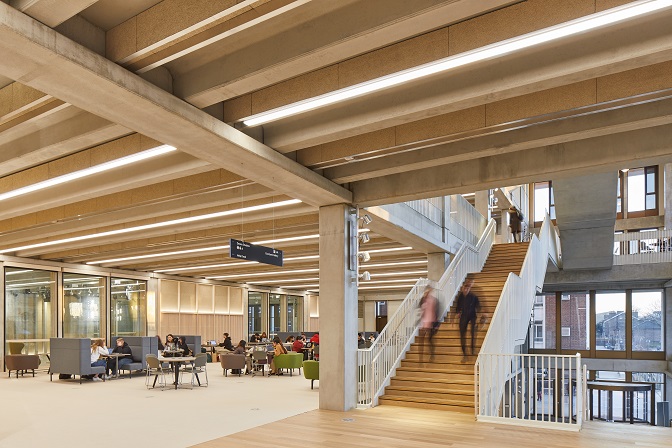How CSAS gives Kingston University added security
Kingston University in South West London stands out in the higher education sector for the way it has incorporated proven police crime prevention measures into the University’s new ‘gateway’ building as well as the way its security staff have been awarded police powers to keep students safe beyond the campus boundaries.
Being able to work in local communities bordering the campus, which had been outside the realm of the University’s security services, has been possible because of the Community Safety Accreditation Scheme (CSAS).
A voluntary scheme, which is contained in Section 40 of the Police Reform Act 2002, CSAS enables private security companies to have its staff accredited with certain police powers by their local police force.
For the security staff who work for Kingston University Service Company (KUSCO), a specialist service and facilities management company, wholly-owned by Kingston University and working exclusively for the University, this has meant employee accreditation from the Metropolitan Police.
It is Police Crime Prevention Initiatives (PCPI), a police organisation that works on behalf of the Police Service throughout the UK to deliver a wide range of crime prevention initiatives, that assesses private sector companies for suitability for the scheme on behalf of the Police Service.
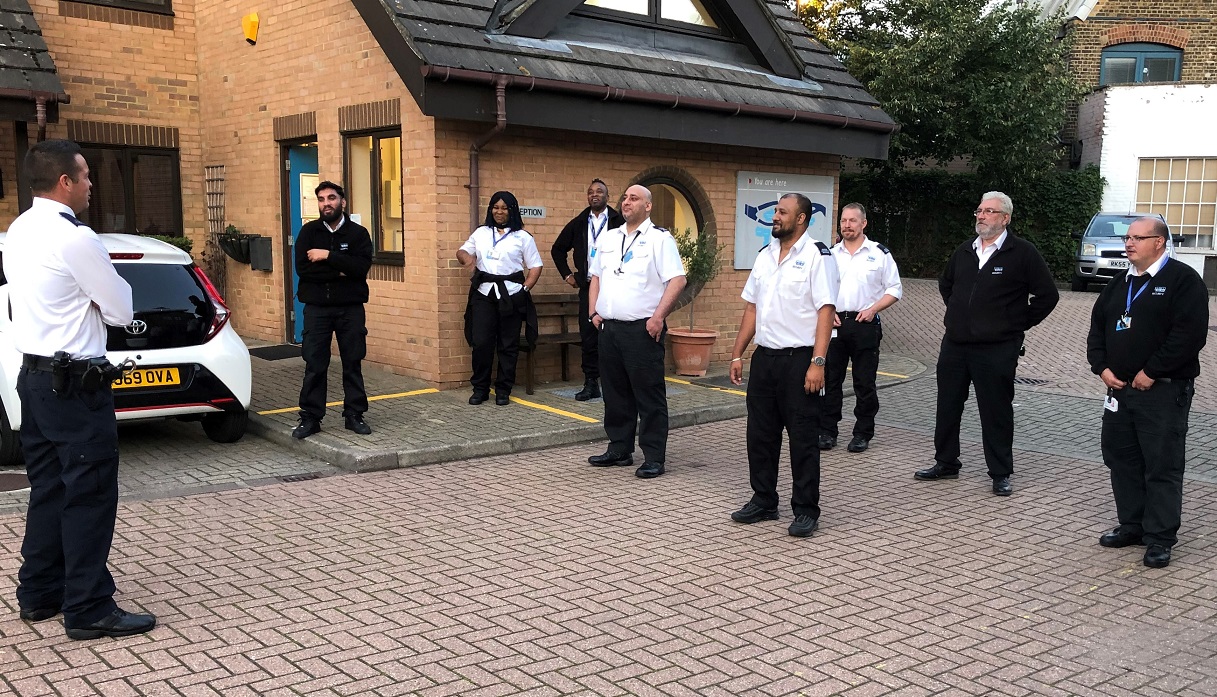
Kingston’s CSAS scheme launched at the beginning of the academic year in September 2017 after members of the team had undergone comprehensive police vetting and extensive training, including personal safety and conflict management and the practical application of limited but targeted powers to reduce student-related anti-social behaviour (ASB) in designated areas outside the campus.
Wearing distinctive uniforms and identity badges, security staff carried out their patrols kitted out additionally with stab vests, body cameras, portable first-aid kits and even water-bottles for acid attacks.
Their accredited CSAS powers include requesting the name and address of a person acting in an anti-social manner and from offences that cause injury, alarm and distress, requiring persons under 18 to surrender alcohol as well as dealing with begging and stopping cycles.
Work began immediately to address local community concerns which included students leaving the University’s bars for accommodation outside the campus as well as those returning late at night from the town centre to their on-campus halls of residence.
In its first year, 229 ‘events’ were logged and 76 ‘interventions’ were made by the team.
The team escorted or monitored large groups of students going to and from the town centre, dealt with local house parties overflowing into streets and addressed complaints about ASB from members of the public as well as achieving a significant reduction in noise and graffiti on campus.
However, the team, which works closely with the Metropolitan Police, has been of great assistance to the police in many other respects too, such as dealing with drunk and disorderly homeless people, dealing with ‘suspicious’ vehicles parked near to the halls of residence, intervening to stop a group of unknown youths behaving in an anti-social manner on bicycles and reporting an incident to police of youths on motorcycles recklessly riding down an alleyway.
Police have informed KUSCO that reports of ASB in the streets surrounding the halls of residence have been few and far between, if any. For example, reports to police from Mill Street had fallen from more than 50 in a 24-month period to nil after the scheme was launched.
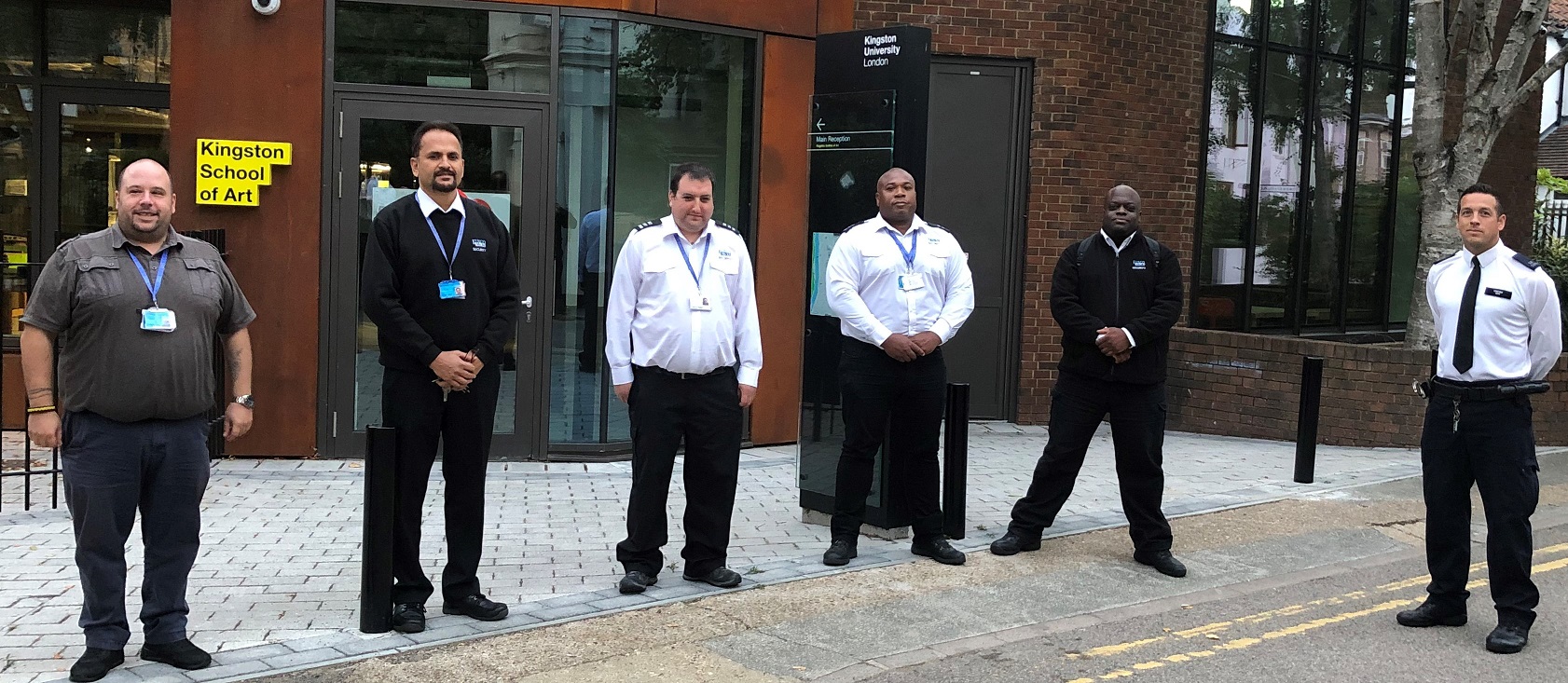
Nigel Bell, Security Manager, KUSCO, said: “Kingston University wants to create a real presence in the borough that reflects the importance of our civic and community ambitions. We want an open and welcoming approach to collaboration between the University, local residents, businesses and the police. Security plays a major part in what we are seeking to achieve.
“Creating a safe and secure learning environment for students, staff, visitors and contractors has always been well-entrenched into the proactive nature of our security team.
“What CSAS has done is to enable us to extend our remit beyond the campus to tackle any anti-social behaviour in surrounding streets.
“I am delighted to report that the scheme continues to receive positive comments from students, staff, residents and police.
“CSAS means we can help students stay safe over a wider area and assist the police by taking the pressure off them, reporting incidents to them and helping them make the most of their hard-pressed resources,” Nigel added.
Strong support for the University’s security team has come from the Metropolitan Police. Roger Arditti, Superintendent, Neighbourhoods, South West Borough Command Unit, which includes Kingston, said: “KUSCO and its CSAS accredited staff are continuing to work closely with the Metropolitan Police to have a positive impact on the local community and the quality of life around the University.
“We have seen reductions in night-time ASB calls to police of up to 95%. I truly believe that this is an example of best practice and sincerely hope that the scheme will become a model for other institutions nationwide.”
Ken Meanwell, who leads on CSAS for PCPI, said: “KUSCO is an excellent example of how CSAS has provided benefits to students, staff and local residents. The number of complaints from local residents has reduced significantly since the scheme was introduced.” (Photos below show Kingston's new Town House).
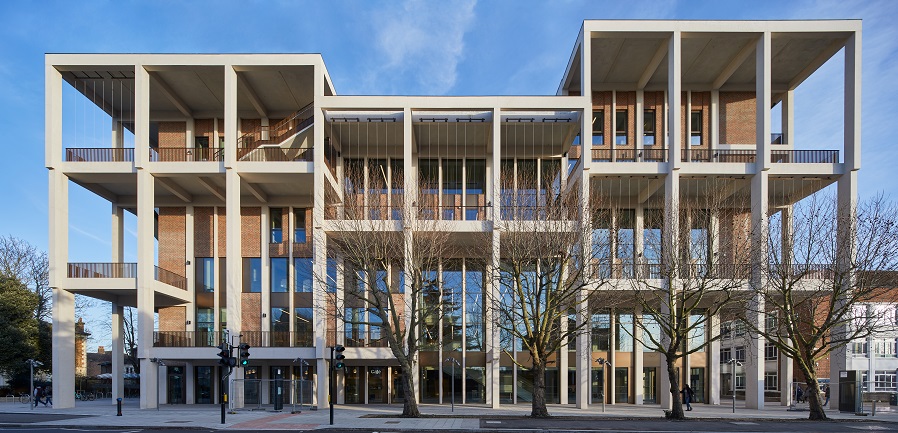
KUSCO has continued to operate since the Government’s COVID-19 lockdown on 2 April which required the University to close all buildings for teaching, learning and administration whilst keeping its halls of residence open. It has been providing the University with a wide range of services and support since 1997.
In April 2018 KUSCO received a Certificate of Excellence for professionalism and exceptional work performance from the Association of University Chief Security Officers (AUCSO), which is an organisation for security professionals working in higher and further education in the UK and Europe. AUCSO has been in touch since seeking further information about the merits of CSAS. KUSCO has also received a Certificate of Recognition for professionalism and commitment to CSAS from the Metropolitan Police.
How CSAS works
The role of assessing private sector companies seeking approval to run a CSAS is carried out on behalf of the National Police Chiefs’ Council by Police Crime Prevention Initiatives (PCPI), a police-owned organisation that works on behalf of the Police Service throughout the UK to deliver a wide range of crime prevention initiatives.
PCPI carries out checks to establish whether companies are ‘fit and proper’ to exercise CSAS powers and then makes recommendations to Chief Constables in the area the scheme will operate.
It is Chief Constables in England and Wales who decide whether to accredit employed people already working in roles that contribute to maintaining and improving community safety with limited but targeted powers.
PCPI has assessed more than 120 private sector companies seeking to run a CSAS. The scheme significantly increases the number of businesses able to deliver services that reduce low level crime and disorder whilst assisting police by easing demands on their time and resources.
At their last CSAS renewal in January 2020, KUSCO had nine accredited officers operating within the scheme.
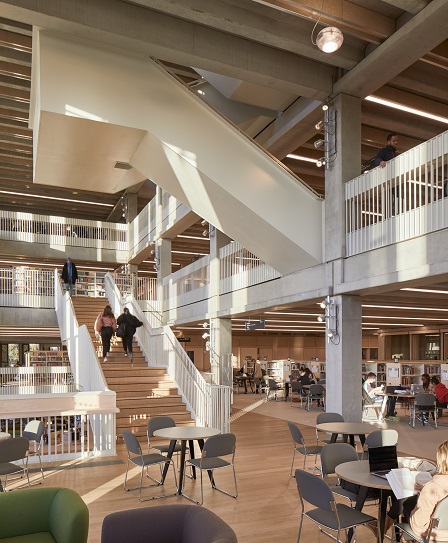
Kingston’s new Town House building
Police officers specialising in designing out crime from the Metropolitan Police had their first meeting about the security requirements for Kingston University’s multi-million pound Town House development in January 2015 – eight months before planning permission was granted and two years before building commenced. Police, security consultants, the University’s security and faculty teams, and architects and developers all worked together through the planning, design and construction stages to make the Town House a safe and secure learning environment for students and act as a gateway to members of the local community, such as residents and businesses.
Security considerations included boundaries, accessible stairwells, cycle parking, CCTV, access control and multi-use areas. ‘Security walk-throughs’ were conducted to evaluate the access requirements of every door and position of every CCTV camera.
The new Town House opened in January 2020 but had to close within three months due to COVID-19 restrictions. As the academic year started in September, the Town House reopened to Kingston University students and staff on a reduced capacity basis with its facilities only being open to the wider community as and when it is safe to do so.
For further information visit:
For PCPI / CSAS:
https://www.policecsas.com
For KUSCO visit:
https://www.kingston.ac.uk/aboutkingstonuniversity/kusco
For Kingston Town House visit:
https://www.securedbydesign.com/about-us/news/kingston-university-town-house-a-showcase-for-learning-in-a-secure-environment
